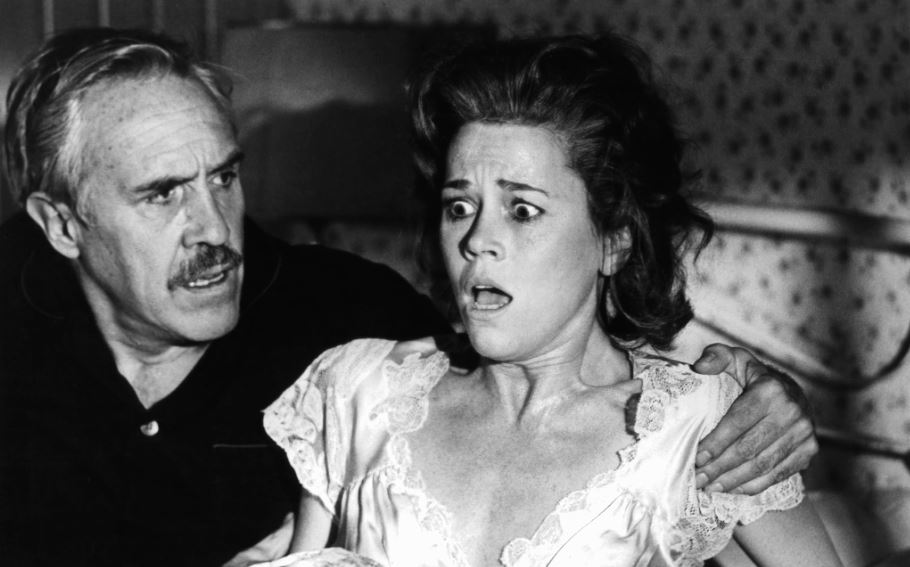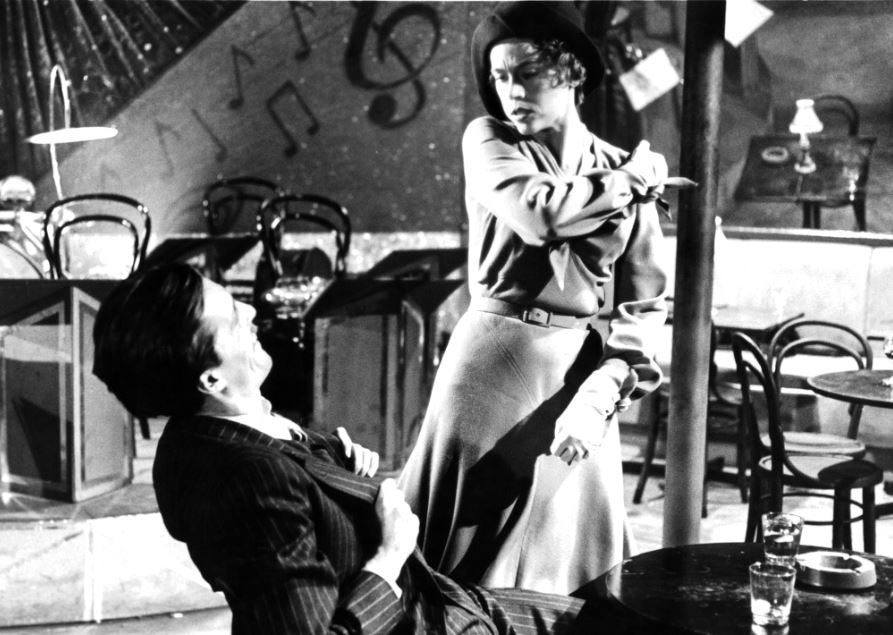
Let’s say you’re Lillian Hellman. Brilliant writer, captivating intellectual, companion of the equally legendary Dashiell Hammett. You spend your days in a seaside manor, pounding away at assorted keys while smoking enough cigarettes to keep Philip Morris in silk sheets for a millennium. Occasionally you’ll cry in frustration, toss a typewriter out the window, or beg your partner in crime for honest feedback. If you’re Hammett, a giant in your own right, you’ll gaze meaningfully at assorted manuscripts, tease bon mots by a fire or two, and walk along the ocean lost in what is assumed to be deep thought.
And if you’re Julia, you’ll say very little, move to and work in the epicenter of a global conflagration, then, after years of silence, demand that a woman you skipped around mansions with as a teenager suddenly uproot her existence to bring a hatful of cash to Nazi Berlin for some nebulous reason that may or may not involve rescuing a Jew or two. Assume all this, and you have Julia: a film so fractured, pointless, and confusing that the only selling point quickly became Jane Fonda’s luminous lipstick.

We begin with the central friendship, one so fraught with feminist meaning, it was meant to redefine cinematic love for a generation. Instead, we get two people who never relate to each other except for being products of obscene wealth; the sort of wealth that inevitably turns idealistic young brats into humorless socialists. Never at any point do Lillian and Julia have a meaningful exchange, and their utter disconnection means that much more to the storyline when we are expected to believe that Ms. Hellman would undergo a journey only slightly less perilous than Eliza’s hopscotch along the ice floes to, apparently, save the whole of Europe from fascism. Who knows? The screenplay takes everything within earshot for granted, and the viewer is left filling in the blanks that apparently resulted from a half-charred screenplay that never made it to the set.
As stated, Fonda is a stunning piece of womanhood throughout, and one can believe she’d be the object of desire for the likes of Julia, Hammett, and other assorted spies and men of intrigue, but at no point is she a three-dimensional human being. I’m not even sure she’d pass as a cipher. She is “Lillian Hellman,” all caps, and the legend is meant to stand in for the benign neglect of screenwriters who assumed they were working on a cartoon.
She could be any number of self-important writers of the age, though Fonda bites her lip enough times to remind us that yes, writing plays is tough work, especially when you don’t have to worry about your next meal. Hammett too has a biography worth noting, but after suffering through the anonymous grunts of an indifferent Jason Robards (like Vanessa Redgrave’s Julia, inexplicably awarded an Oscar), I can’t say I’ll be pursuing things further. He may as well have been a plumber for all the depth he brought to the proceedings, but at least with a plumber we’d get the approximation of a craft in action.

So yes, Julia involves a world ass-deep in war, revolution, and sudden change. There’s talk of bettering society, freeing assorted peoples, and risking it all for king and country. Only we never truly understand the stakes. The film would have you believe that Julia is one of those sun-drenched martyrs one discusses in hushed tones, only I can’t see how $50,000 is going to do a lick of good in the face of the Luftwaffe.
Maybe that’s the point. That, like someone once said, to save one life is to save the world entirely. Only that’s horseshit. Self-important horseshit at that. Saving the world involves planes and tanks and bombs and fire, and dressing like a runway model on assorted trains only gets you the occasional whistle. Maybe a request for papers. And it’s privileged pukes like Julia who would have you believe that their manipulative skullduggery is accomplishing a damn thing other than the mere fantasy of heroics. It’s grist for your next novel, not anything the history books are obligated to remember.
Leave a Reply